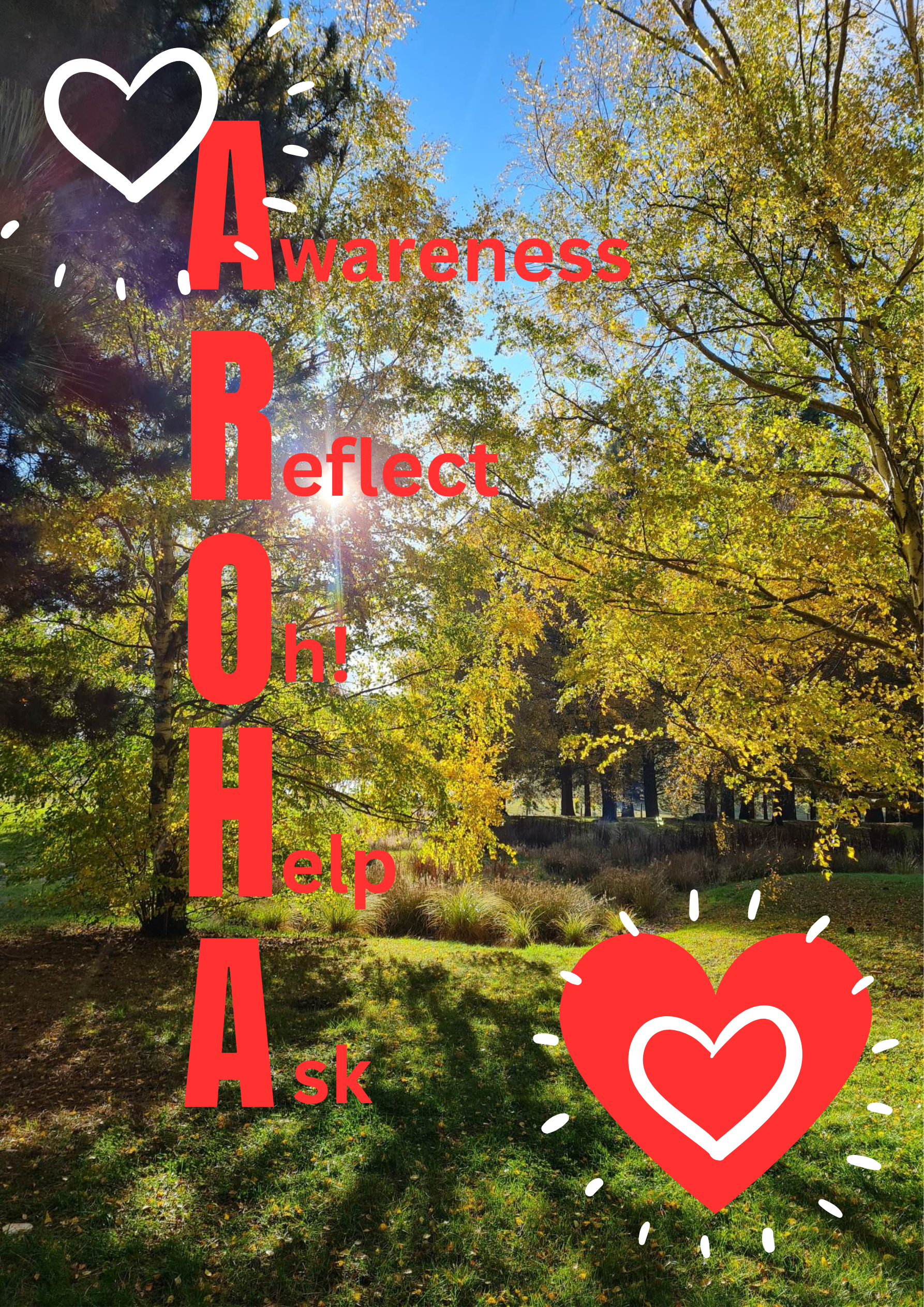
It’s that time of the cycle again – yup, the beginning of a new term.
The winter terms are usually fraught with all sorts of mischief – but then again which term isn’t?
So with this in mind, what sort of systems do you have in place that are simple enough to use when times get dark and tough?
Well-being is definitely an individual thing. There are things that you can do for yourself to keep your head above water. But it doesn’t stop there. Well-being as a collective can be even more useful in a workplace or home environment. Anywhere that people find themselves in stressful situations.
With that in mind, here’s a simple five step plan that you may find useful to run through when you notice that things might be getting tough for those around you.
It is based on a model that is used within the Ministry of Health here in New Zealand (the five R’s of recognise, reflect, raise, refer and reconnect), but we’ve made it a little easier to remember using our favourite NZ word for love; AROHA.
A is for AWARENESS. Be aware of the people around you. Take notice and care of them. Behaviours change when people are under stress, even for those who are really, really, really adept at hiding their stress and pain. So keep an eye out on the people around you. Check in on them, and in a non-snooping sort of way (!) show an interest in what they’re up to.
R is for REFLECT. Reflect on the information that you are noticing. Is the behaviour you’re seeing out of the norm? Are things happening for this person that are trying and challenging?
O is for OH! as in “oh heck” I’ve got to do something with this information. If you’ve noticed it then don’t ignore it. Think of the best way to deal with this “thing” that you have seen or noticed about a colleague, friend or sibling. It’s a tough step for you to take, because potentially you can hurt the feelings of the person involved, and or make their situation even worse. Yes, you might well think that it’s none of your business. But if you are doing this from a position of having an open heart (e.g. you’re not being a mean spirited pain in the arse wanting to get as much mileage as you can out of the mis-fortune of your colleague, friend or sibling) then there’s not a lot that you can lose in going ahead with the next step. If you’re not too sure, then maybe you can talk to a colleague or a trusted leader in your organisation about possible next steps.
H is for Help. Help comes in all sorts of ways. But the best place to start is just by having a conversation with the person. And if you’re not the best person to have this conversation, then find someone who is. Ask them how they’re doing. Ask them how they’re finding things at the moment. Don’t go in thinking or presuming that you’re going to be able to fix this. That’s not necessarily your role. Instead go into the conversation with an open mind, in the knowledge that you just might be the first person that this person has spoken to about what is going on in their world, and they’ll be mighty relieved and thankful for that.
It’s quite likely that they will say everything is fine. People are great at initially minimising their pain. Feel free to share what observations you might have, but in a gentle and caring way. Again, if you’re not the right person to do this, then find out who is.
From this conversation you can then help your colleague take the next step – and that is finding some sort of support mechanism to help them get through. The Employee Assistance Programme (EAP) provider can provide specialised support
A is for Ask. Ask them if it’s ok if you check back in with them at some stage. If you’re not sure if they want you to check in again, ask them. What would be the best way to reconnect with them?
Letting them know that you’re here and you care about them; well that’s something that can go a very long way in the minds of people under pressure.
It’s a great idea to have a plan that you can go to when things turn rough for those around you. And it’s way better than doing nothing.
A R O H A
Steve